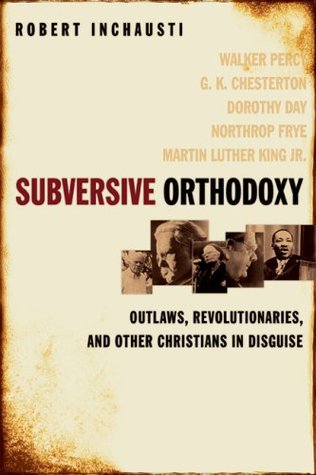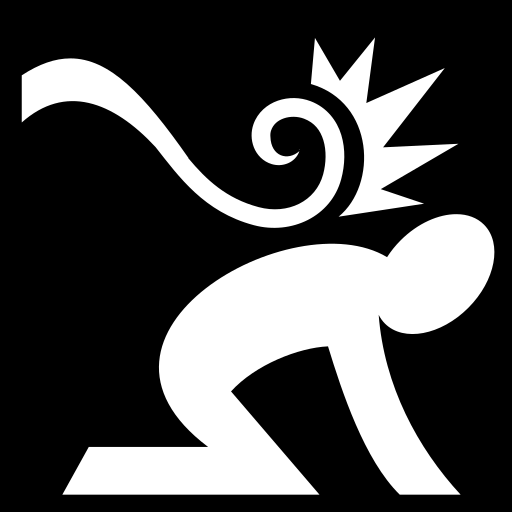
The religious renegades and spiritual misfits contained in this book have been steadily subverting modernism and reorienting people back to a more inclusive and liberating Christian vision of reality. An unfortunate truth for me is that I knew virtually nothing about most of these people. Another sad testimony to the narrow silos we Christians tend to disappear into.
William Blake (1757-1827 Poet/Painter): A prophet of doom in an age of fashionable rationalism. Science dismisses the inner life, closes off the imagination. In this world, all that matters is objective truth and instrumental reason. Feeling and belief are shut out. Even Christians with their “rational theologies” were falling in step with this new world order to the disgust of Blake. “Human reason and modern science make us both more powerful and less alive at the same time….A person who is not an artist cannot be a Christian.”
Johann Wolfgang von Goethe (1749-1832 Writer, statesman): The promise of the Enlightenment was a morally unencumbered life with happiness guaranteed through technological progress. Traditional virtues and a robust internal life mattered little in this new way. Goethe masterfully exposes these false promises in all his novels. The inner life is real, attending to it is vital for human flourishing. “Our dreams can never be fulfilled because they are a symptom of a deeper longing not of this world.”
Soren Kierkegaard (1813-1855 Philosopher) Looking to the crowd is no place to find answers, true spiritual solitude is needed to find ones way. Deep internal reflection reveals fundamental brokenness in all of us, we must accept this as real, rather than defiantly persist in ignorant despair. Repentance and submission to true existence in God is the right path. “This perpetual rechoosing of Christ is the great paradox and challenge of the Christian faith…(without it) one falls back into formulas, inauthenticity, and a dependence on the crowd.”
GK Chesterton (1874 – June 1936 Writer, poet, philosopher) The shining lights of Chesterton’s time lived primarily according to Christian principles while at the same pushing decidedly non-Christian ideas such as moral relativity. Chesterton shined a significant spotlight on these contradictions. As for the young bullies who picked on ancient ways he had this to say: “We often read nowadays of the valour or audacity with which some rebels attack a hoary tyranny or an antiquated superstition. There is not really any courage at all in attacking hoary or antiquated things, any more than in offering to fight one’s grandmother. The really courageous man is he who defies tyrannies young as the morning and superstitions fresh as the first flowers. The only true free-thinker is he whose intellect is as free from the future as from the past. He cares as little for what will be as for what has been; he cares only for what ought to be.” Chesterton believed that spiritual corruption was at the heart of all the problems rolling into the 20th century and technique, money, and power would never resolve the source of man-kinds issues.
Nikolai Berdyaev (1874-1948 Philosopher) – The cultural ideals of the knight, the monk, the philosopher and the poet have all been superseded but the cultural ideal of the businessman. Personal success, security, and happiness are the ultimate goals now, and making money is the way to achieve those goals. The god’s of progress and commerce turn people into things, life is reduced to techniques, the free soul of man must be found again in God through the acknowledgement of our sinful nature and the welcoming in of God’s grace.
A word about the novel — “Novelists may be our truest theologians of the modern — the first and finest flowering of the Christian orthodox avant-garde.” How so? “It is true that storytelling reveals meaning without committing the error of defining it.” A story is a story and not bound by rules. We are allowed to think of higher things when we steal away with a novel. Without them, our world is just materialistic forces, techniques and meaninglessness. Only through poetry and story can we penetrate our data-drenched materialistic society. Only through story can existential reality come alive. Sadly theologians have tried to become scientists with the Bible, “proving” it, learning techniques from it, and making it a tool. Its purpose has always been for spiritual reflection. The Bible was not intended to be a machine that spits out facts. Who are the great novelists, whose stories move us into the realm of transcendent reality?
- Dostoyevsky — “His works are an expression of his own struggle to realize the true meaning of his faith, a working through — not philosophically or logically but imaginatively of what it means to practice active love, what it means to turn suffering into happiness and what it means to die so that you may be reborn.”
- Aleksandr Solzhenitsyn & Boris Pasternak — They brought into the Communist world new expressions of moral presence and transcendent hope.
- Jack Kerouac — “The true work is our belief: true belief in immortal good; the continual human struggle against linguistic abstraction: recognition of the soul beneath everything, and humour.”
- Walker Percy — For thousands of years, myth enabled us to find ourselves in a world, to know who we were, and what our lives meant. The twentieth century, with its metaphysical skepticism and reductionist science, severed that connection, so now mankind according to Pearcy is “lost in the cosmos.” Man is more than an organism in an environment, more than an integrated personality, more even than a mature and creative individual, as the phrase goes. He is a wayfarer and a pilgrim..a seeker of meanings, a metaphysical bridge builder, a self.
Dorothy Day (1897-1980 Journalist, social activist)— Large-scale industrial economies work against human happiness by making everyone economically dependent on people and forces they don’t know and forces they can’t control. Day wanted workers to own their own businesses and land. She wanted to abolish the assembly line and restore work as a craft. She envisioned monastery-like communities of like-minded families and friends: living together, off the land, producing goods and services that help to build the city of God within the city of man. She was over the course of her life outspoken against the dark side of communism, industrial capitalism, violence, & poverty.
Thomas Merton (1915-1968 Writer, mystic) — Capitalism, mass media, Movies & T.V. disorient and distract us. Society is in a constant rush towards technological determinism (if its possible it must be done) Our societies desperate attempt to keep up with the latest news to “not fall behind” was repugnant to him. To fall behind was to “get out of the big cloud of dust that everybody is kicking up, to breathe and to see a little more clearly” He advocated prayer, silence, solitude, and recollection as medicines against modernity.
Martin Luther King — (1929-1968 Baptist minister & activist) Personal faith, must lead to public, non-violent action on behalf of marginalized and disenfranchised people. For all people especially the downtrodden we must see ourselves as receptacles of God’s love. This truth if believed will fill up every human with dignity and self-respect which will change the world for the better.
E.F. Schumacher (1911–1977 Statistician and economist)— First there was primitive religiosity, which was cast aside by scientific realism, however, the third stage in human development is the awareness that there is something beyond fact and science. The trouble is those staunchly grounded in the 2nd stage see very little difference between stage one and stage three. Anti-metaphysical claims that save us from our superstitions don’t actually provide us with creative solutions to all our problems. Turns out the lab coat as God doesn’t actually help and might, in fact, make things worse!
Wendell Berry (1934- Poet, farmer) — The exploitation of colonialism has just shifted to the exploitation of global corporations. What’s the solution? Everyone needs to go back to farming! In Wendell’s estimation Industrialization is no friend to humanity. Globalism is a myth of progress which will just end in war – back to the farm’s everyone!!!.
Marshall McLuhan (1911-1980 Professor, philosopher) — Instantaneous mass media through video and audio has created a less literate world that is controlled more by the right brain of experience than the left brain of logic and reason. With this total brain shift, he predicted the growth of violent political and religious extremism. He nailed that one! The change will pit an ageing literate, educated, reasonable class against a new orally oriented techno-peasantry of mass media who are emotional, confused, reactionary, violent, aural, and mystical. This age will be punctuated by momentary passions, improvised collectives and spur of the moment convictions followed by spur of the moment retractions. Attention spans will become short, and the power of retention will be weakened. What does this all mean for the church? Old ways will not work, people will be drawn into more experiential forms of Christianity. A prayer retreat will be more popular than a sermon. Doctrinal debates and denominationalism will cease to be important factors, supernatural possibilities will be more readily accepted. For McLuhan, this media apocalypse wasn’t the end though you might think it after reading him! He reminds us “The church is not an intellectual institution anyway.” The medium (the Christian life lived out) is the message.
Northrop Frye (1912-1991 Literary critic) — Myth: a structure of ideas, beliefs, assumptions, anxieties and hopes which express the view of man’s situation and destiny. Mythology is a product of human concern, and it’s built upon literature; folk tales, metaphor, narrative, and poetry. Over time they become for a people group the informing principles of historical and philosophical thought. Mythological thinkers are never overcome by science, history, philosophy or theology. A Myth is neither historical or anti-historical it is counter-historical. Is there a historical Jesus or not is the wrong question to ask according to Frye. What matters is we have his story in myth and metaphor. It is to capture our imagination and shape the direction of our lives. Myth is the more profound truth. When the Christian faith is understood as having it’s informing principles sourced in myth the efforts on both sides to expose or defend scientific and historical strengths and weaknesses can stop, and Christians can also relax some of the ossified dogmas and doctrines.
Jaques Ellul — (1912-1994 Philosopher) — We worship method and technique as the answer to all the World’s problems. A paradox happens when we bow to this god. We become less free at the very moment we become more powerful. Our minds are cluttered with untruths. We live in an environment where non-thought is continuously received, we’ve created vehicles to spread stupidity at an alarming pace (This was well before Facebook, what Ellul would have said if he could have seen today!) For Ellul hope was the actual reality to hang on to. Hope not grounded in technology, but rather in God.
Ivan Illich (1926-2002 Philosopher) — Words are no longer a medium for fresh and original communication instead they are just tools to be manipulated for selfish ends. We have never been more confused and certain at the same time! We have seen the demise of contemplative culture. There can never be any “dead air” no matter what. This is a colossal mistake because silence is necessary for the emergence of persons.
Rene Girard (1923-2015 Historian, Literary Critic) — Humans are never satisfied, we always feel a sense of lack which feeds our desire for what others have. Humans created “the Scapegoat” as a way to manage these feelings. An individual or group is blamed and punished, and thus social cohesion is achieved through the destruction of the projected evil. It’s how we justify violence. Jesus comes along and blows up the whole system because God turns out to be on the side of the victim and not the self-righteous community. Atonement theories that embrace Jesus as the “scapegoat” are actually against the play of the story. Jesus died to save the world from the lie it believes that it’s ok to crush someone for self-advancement. It’s not ok, it’s never ok. God is always on the side of the scapegoat. Girard defends Christianity through anthropology and also reverses more violent understandings of God.
Quote-Worthy:
- We are not quite what we imagine ourselves to be, nor are we quite as in control of our beliefs as we think, nor quite so essential as we imagine. (Inchausti)
- Everybody is an unbeliever more or less! Only when this fact is fully experienced, accepted, and lived with, does one become fit to hear the simple message of the Gospel. (Merton)
- Modern civilization is producing things faster than we can think or give thanks. (Chesterton)
- To become aware of the possibility of the search is to be onto something. Not to be onto something is to be in despair. (Percy)
- Christians aren’t better than other people, but their worldview encourages them to recognizes that fact. (Inchausti)
- Christianity teaches that the purpose of life and thought is love, not power. (Inchausti)



